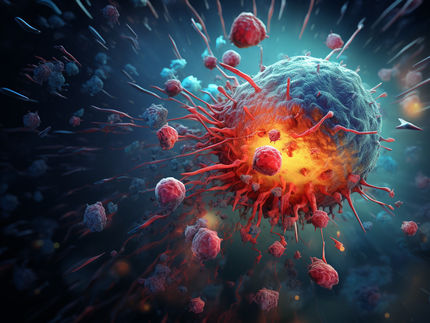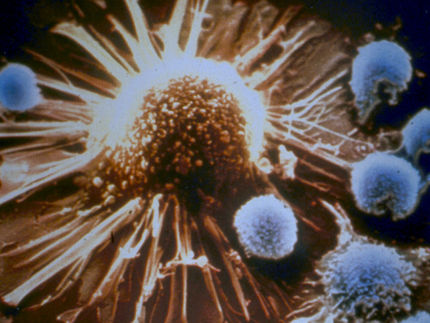Nanoantibodies to combat fungal infections suffered by children with cancer
Nanoantibodies and macrophage-derived cells to be used as immunotherapy to target fungi responsible for major infections
Advertisement
A team of researchers from the Spanish National Research Council (CSIC) will study the use of nanoantibodies and macrophage-derived cells as immunotherapy to combat fungal infections in children with cancer. An important part of the mortality associated with childhood cancer does not derive from the tumors themselves, but from fungal infections contracted by children who are immunosuppressed due to aggressive chemotherapy and radiotherapy treatments. In some types of childhood cancer, such as leukemia (the most common), it is estimated that 10% contract these infections.

Image of researchers Maykel Arias, from IIS Aragón, and Eva Gálvez, from ICB-CSIC. / ICB
CSIC
"This project will use nanoantibodies (nanobodies or small fragments of antibodies produced in alpacas) and so-called CAR-MA cells (CAR cells derived from macrophages), which will be developed in the laboratory to recognize the fungus and attack it," explains Eva Gálvez, from the Carbochemistry Institute of CSIC (ICB-CSIC), in Zaragoza, who leads the project together with Maykel Arias, from the Aragon Institute for Health Research (IIS Aragon). The project will seek more effective treatments against aspergillus, candida, mucorales and fusarium fungi, which cause the most common fungal infections. It has a contribution of 60,000 euros from the Asociación de Padres de Niños Oncológicos de Aragón (Aspanoa).
"This is a highly novel research project because until now these immunotherapies have been used mainly against tumors and we want to prove that they are also valid for fungal infections," says Gálvez.
The project will be developed over the next two years and the experiments will be carried out in vitro and also in vivo in worm and mouse models, with the aim of proving their efficacy and safety in order to later be able to carry out clinical trials in patients.
"These fungi are not dangerous for a healthy person, but in the case of immunosuppressed patients, such as children with cancer, they can be lethal," explains Dr. Gálvez, who adds that the most common disease caused by fungi is invasive aspergillosis, which can lead to the death of up to 70% of children with cancer who contract it.
A CSIC-led project
The current methods for detecting aspergillosis can be greatly improved and the treatment to combat it is not designed for children and is highly toxic," he explains. With the new immunotherapies, we want to find a more effective treatment with far fewer side effects".
More than a dozen researchers, both basic and clinical, are involved in this project. Coordinated by the Carbochemistry Institute of the CSIC, scientists from the Infectious Diseases and Microbiology Units of the Clinical and Miguel Servet Hospitals, the Aragon Health Research Institute and the BIFI of the University of Zaragoza will collaborate.
"We are very happy and we are especially excited to be able to carry out this project with the support of Aspanoa, which is dedicated to supporting children with cancer in Aragon and their families", concludes Dr. Eva Gálvez.
Note: This article has been translated using a computer system without human intervention. LUMITOS offers these automatic translations to present a wider range of current news. Since this article has been translated with automatic translation, it is possible that it contains errors in vocabulary, syntax or grammar. The original article in Spanish can be found here.



























































